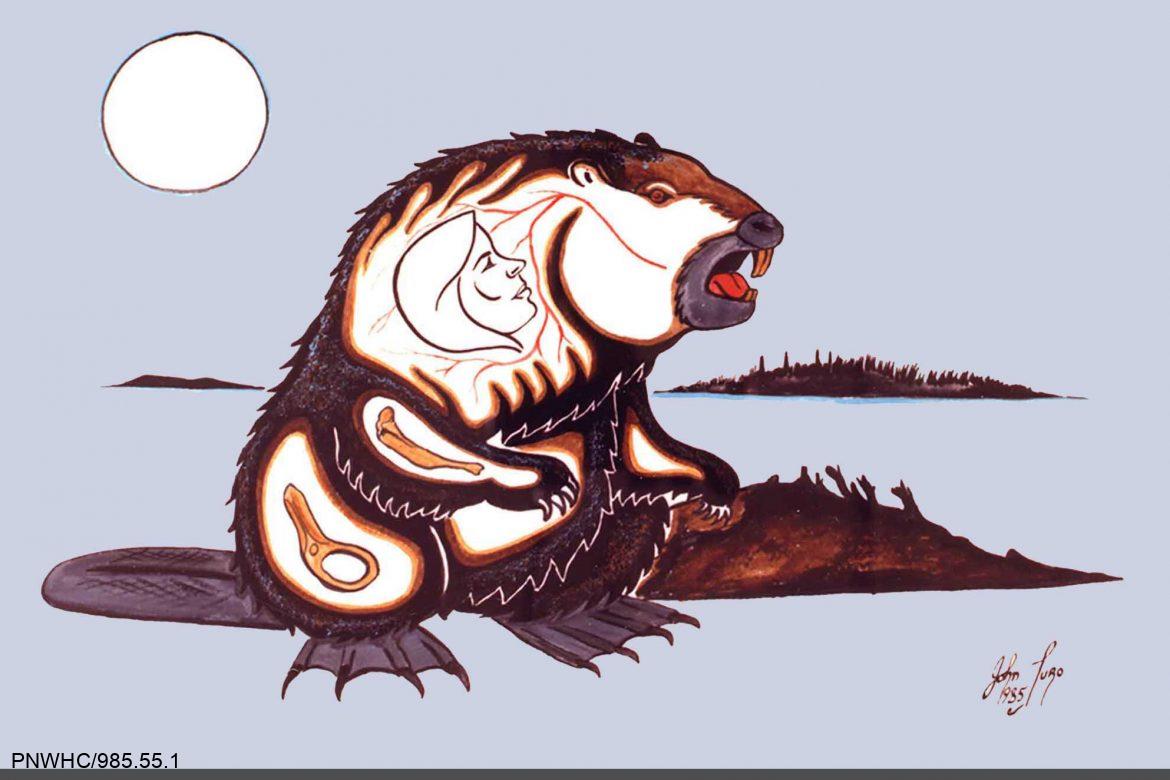Origin Stories
Inuvialuit Origin Stories
The origins of the Inuvialuit are revealed in Ingilraani (long time ago) legends, oral histories, and archaeology. The Ingilraani legend of the great flood, for example, tells how the Inuvialuit lands of long ago were barren, mountainous lands where game and water were scarce. A great flood transformed the land. The Inuvialuit are the children of a family who survived the flood by living on a pingo. From this time, Inuvialuit grew and prospered in their renewed land. Several versions of the story exist, but the central figures in most stories are a husband and wife and their son, who is sometimes spoken of as the spirit of a raven, and an orphan girl.
Source: Inuvialuit Regional Corporation. The Legend of the Great Flood and the Beginning of the Inuvialuit. Inuvialuit History Timeline
Dene Origin Stories
The Dene origin stories are set when Denendeh, the land of the Dene, was a dangerous and unpredictable world filled with giant animals who preyed upon people. Animals and humans could shift form, and people often lived in fear. During this time, a powerful man whose name translates in English as, The One Who Travels appeared in Denendeh, travelling through the territory helping the people. He destroyed the giant animals and separated people from animals, establishing a relationship based on mutual respect and understanding. He gave the people laws to enable them to live together in harmony. He is remembered throughout Denendeh as the great traveller and lawmaker.
Each Dene group has a different name for him; however, he is most widely known by his Sahtu name, Yamoria, because the author, George Blondin, used the name from his people when he published ‘Yamoria The Law Maker’ in 1997. While there are different versions of the Dene origin story, the story reminds Dene of where they come from and how they all connect.
| Language Group | One Who Travels |
| Gwich’in | Atachùukąįį |
| Sahtu Dene | Yamǫ́rıa |
| Tłı̨chǫ and Wıı̀ledeh | Yamǫǫ̀zha |
| Dehcho Dene | Zhamba Déja |
| Dëne Sųłıné | Hachoghe |
